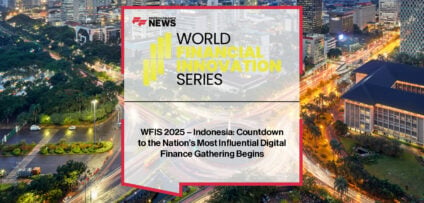Breaking News

Open Banking is primed to supercharge Brazilian fintech and boost financial inclusion
By Helen Child, Founder, Open Banking Excellence (OBE)
Brazil’s bold and booming fintech scene has been making headlines. Last year, Latin America’s largest fintech market – home to some 750 fintech companies – attracted US$1.7bn in investment, nearly double the US$910m in 2019.
This momentum has continued into 2021. According to CB Insights’ State of Fintech report, two of the world’s top 10 fintech deals in the first quarter involved Brazil-based companies: digital real estate platform Loft (US$425m) and Nubank, a challenger bank serving 40 million customers (US$400m). The growth of fintech reflects both the challenges faced by the vast country, and the opportunities there. Despite widespread poverty, Brazil is a highly-digitised economy. As such, mobile banking is common, and the country’s digital banks – such as Nubank, Inter, and C6 Bank – have already achieved a strong position in the banking market. With an average of 1.6 mobile phones per person, Brazil is expected to surpass 200 million digital bank accounts this year.
And excitingly, Brazil has witnessed several important developments recently, including the launch of Pix, the country’s instant payment system, and the introduction of Open Banking regulation, which will further fuel the fintech ecosystem. By the end of this year, Open Banking will be a reality in Brazil.
Laying the regulatory foundations
The Brazilian Open Banking initiative was first introduced by Banco Central Do Brasil, the country’s central bank, in August 2019 via a public consultation. This extensive consultation focused on a regulatory proposal for the implementation of Open Banking by financial institutions, payment institutions, and the other organisations licensed by Banco Central Do Brasil. From there, things have moved at an impressive pace. In alignment with the roadmap defined by Banco Central Do Brasil, the implementation period of Open Banking in Brazil consists of four phases running throughout this year, which will see the gradual opening up of the banking and financial services sector.
If we compare this to the UK, which saw the introduction of Open Banking standards in January 2018 and will probably witness the end of the implementation period in early 2022, the Brazilian Open Banking project looks very ambitious.
Successfully concluding all four phases in less than 12 months is a considerable challenge to deal with. According to Aristides Andrade Cavalcante Neto, Deputy Head of IT & Chief of Cybersecurity & Technological Innovation Office at Banco Central Do Brasil: “The implementation of each stage of Open Banking in Brazil is not an end in itself, but the beginning of a deep transformation of how financial services are conceived and delivered to consumers. We’ve learned a lot from other jurisdictions and especially throughout our implementation journey, making adjustments when necessary.”
Bringing over lessons from the UK
Against this backdrop, OBE Brazil has landed in the country at a pivotal time. We believe the plan set out by Banco Central Do Brasil will promote even more profound changes than those that have taken place in the UK, making Brazil a new standard in the sector. We’re delighted to be part of the story. The impact that Open Banking will have in Brazil simply can’t be overstated. The opportunity for Brazilian fintechs is massive – the traditional financial institutions alone won’t be able to cover all the new ground that Open Banking will open up, making the country a great place for fintechs to play!
As such, we anticipate Open Banking will trigger much greater cooperation between the Brazilian banking system and fintech start-ups, resulting in a better suite of financial products and services. Importantly, this will attract millions of new users to the country’s financial system. Brazil has almost 34 million unbanked individuals, many of them female and living in remote and poor areas. I’ve no doubt Open Banking will offer them a plethora of fresh and accessible options to choose from.
The role of OBE is to bring together the banks, fintechs, regulators, and other industry stakeholders to learn, share stories, debate, and – above all – collaborate with one another. First founded in the UK, a pioneer country in Open Banking, we’ve developed initiatives that can be easily replicated in Brazil, taking into account local requirements and regulations.
Given that education and collaboration are crucial, OBE Brazil kicked off its activities with a Campfire, a live session that brought leading figures together to discuss the best path forward. The Campfire had two panels: “Brazil’s brave new Open Banking landscape: Barriers, opportunities and real-world wins”, a session focused on how the country can capitalise on opportunities, as well as overcome existing roadblocks — at speed; and “From the UK to Brazil: Lessons learned from the UK Open Banking journey”, where the audience heard from those who’ve been leading the charge in the UK market.
I’d encourage anyone interested in Open Banking adoption to watch the recording. Mr Neto from Banco Central Do Brasil was joined by a raft of expert speakers, including Spencer Mahoney, Deputy Trade Commissioner for Latin America & Caribbean at the Department of international trade, who said: “We can prosper together. Open Banking is an area of mutual potential for the UK and Brazil. I’m very bullish – if it works in the UK, it will work in Brazil and other countries.”
The mood was upbeat, with speakers agreeing that the Brazilian market is primed for collaboration between banks and fintechs. “Brazil is well on track to deliver on all the promises of Open Banking and Open Finance,” said Ralph Bragg, Founder and CTO at RAiDiAM. “We have seen that the big banks are very keen to become the new TTPs (third-party providers). They want to be the new entrants.” “In Brazil, there’s a defined goal: financial inclusion,” added Imran Gulamhuseinwala, Trustee at the UK’s Open Banking Implementation Entity (OBIE). “This is fantastic and you will probably see large banks and fintechs collaborating together more.”
Also present was Edlayne Altheman Burr, Managing Director – Financial Services, Accenture, who highlighted the scale of the project. “The scope in Brazil is larger than in other countries, like Australia,” she said. “I believe that Brazil will soon become a reference in the sector; Open Banking is rapidly creating new business models across the country.” The positivity from these key market players was good to hear. With Brazil poised for mass adoption of Open Banking standards that will open up a multitude of opportunities for innovation, it’s crucial that all stakeholders work together to create a better range of consumer-centric financial services.
People In This Post
Companies In This Post
- GNOMI Launches the Only ‘Finance Mode’ with Real-Time Global Earnings Calls and Generative Market Intelligence Read more
- Cross River Launches Stablecoin Payments With Infrastructure to Power the Future of Onchain Finance Read more
- Tidalwave Raises $22M Series A, on Track to Reach 4% of U.S. Mortgage Market Read more
- Emerging Market Opportunities: The Next Billion Customers | Freemarket, Fincra and Axiym | FF Virtual Arena #358 Read more
- Inside Citi’s AI Playbook: Curated Data and Transparent Decisions Read more












